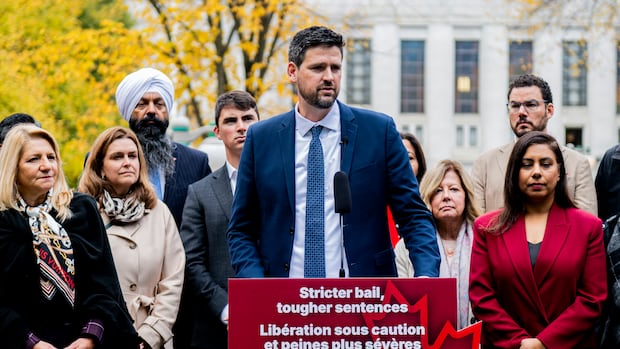
"The new legislation, C-14, makes dozens of targeted changes to the bail and sentencing framework in the federal Criminal Code, something victims' rights advocates, police unions and some provincial premiers have long been demanding. Those demands came amid an uptick in violent crime over the last decade or so although crime rates were down slightly last year as the country recovers from a post-COVID surge."
"They include the creation of new so-called "reverse onuses," which means detention is the default option and it's up to a bail seeker to demonstrate why they should not remain behind bars while they await trial. These new reverse onuses, if passed by Parliament, will apply to people charged with violent or organized crime-related car theft, break and entering, trafficking in persons or human smuggling, assault."
Bill C-14 changes the bail and sentencing framework in the federal Criminal Code to keep some offenders detained longer. The legislation creates reverse onuses making detention the default for specified offences and requires bail seekers to demonstrate why they should be released. Reverse onuses apply to violent or organized crime-related car theft, break and entering, trafficking in persons or human smuggling, assault, sexual assault involving choking or suffocation, and extortion involving violence. Courts must scrutinize bail plans to ensure reliability and credibility. The measures respond to demands from victims' rights advocates, police unions and some provincial premiers amid an uptick in violent crime and aim to restore public confidence.
Read at www.cbc.ca
Unable to calculate read time
Collection
[
|
...
]